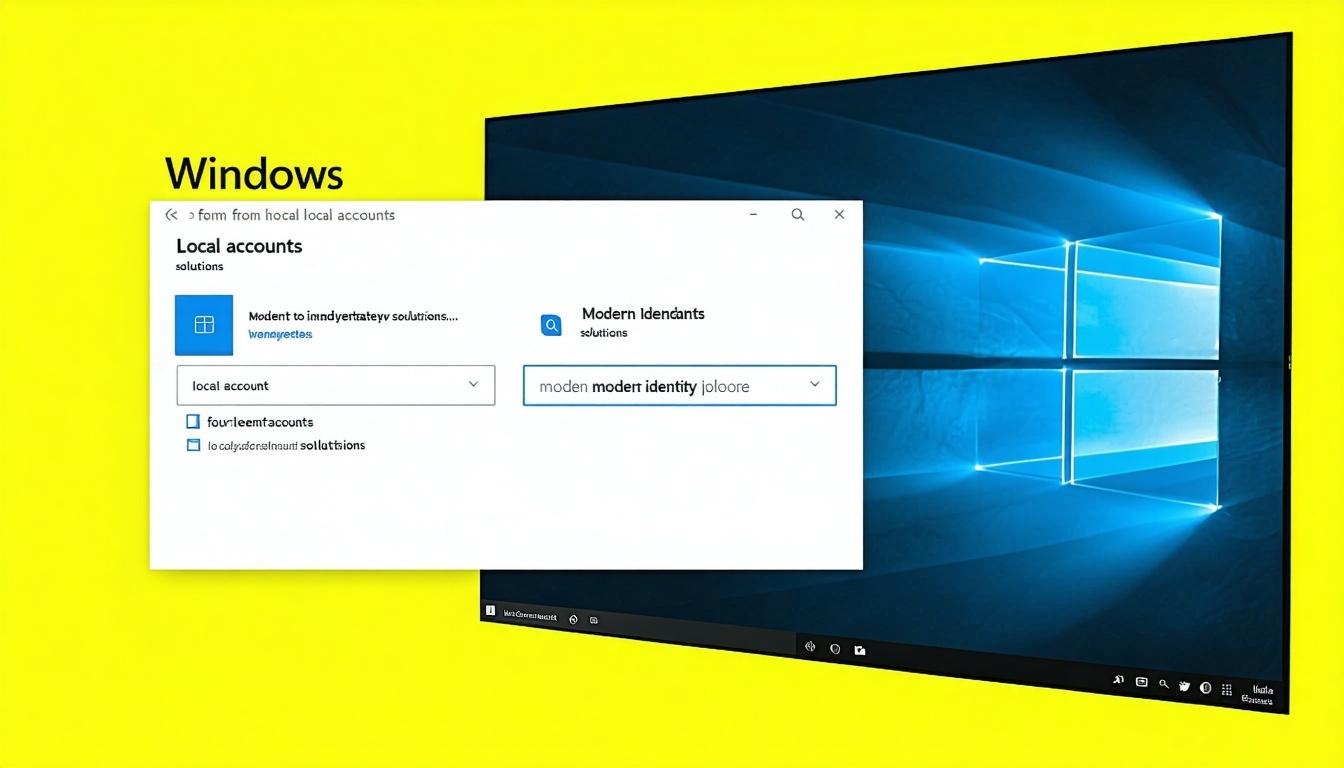
Windows Local Accounts: Death, Benefits, Costs, And Security

An in-depth exploration of the evolution, benefits, costs, and security implications of using local accounts on Windows 10 and 11 in the financial services industry.
A Brief History of Local Accounts on Windows
Local accounts have been a staple of Windows operating systems since its inception. Initially designed to provide individual user access to a single machine, local accounts allowed for basic user management and file security. Over time, as businesses began to adopt Windows as their primary operating system, the use of local accounts has expanded to include more advanced features such as user profiles and permissions.
Within Windows 10 and Windows 11, local accounts continue to be a reliable method for user authentication - however, as the digital landscape continues to evolve, the limitations of local accounts are becoming more apparent, and Microsoft have deemed that support for local accounts will cease within the near future.
The Future of Local Accounts
In short, there is NO future for local accounts in business environments - Microsoft are progressively removing functionality and will eventually cease support for them.
The Future - Transition to EntraID
EntraID is a centrally managed, secure, cloud based identity manager designed to secure devices, applications and data for the modern business workspace.
With businesses moving toward cloud-based application solutions and remote work environments, EntraID is the most obvious, lowest friction replacement for local device accounts.
EntraID offers seamless integration with cloud services, enabling businesses to manage user access to multiple systems (eg: laptop, Office applications, Teams, CRM and data storage) from a single location.
The transition marks a significant shift in how businesses handle user authentication and management. EntraID not only simplifies the onboarding and offboarding processes but offers enhanced security by leveraging multi-factor authentication (MFA) and conditional access policies (rules that control when, where and from what type of device you can login for example).
These features are particularly beneficial for organisations in health, finance and care delivery, where data protection, regulatory compliance and audit trails are critical.
Benefits for Business Operators and Staff
The adoption of EntraID provides numerous benefits for both business operators and staff. For business operators, the centralised management capabilities of EntraID streamline administrative tasks, reducing the time and effort required to manage user accounts. This is especially advantageous for large or multi-site organisations with a mix of full-time, casual, and job-share staff.
For staff, EntraID offers a more seamless and secure login experience. With single sign-on (SSO) capabilities, employees can enjoy a streamlined login process, starting with entry of credentials for the device which then allows access to all authorised applications. The productivity improvement and reduction in password fatigue are measurable and well appreciated!
Additionally, EntraID's robust security features enable further protection of sensitive financial data, providing peace of mind for both employees and employers.
Cost Considerations: Support and Licensing
Transitioning from local accounts to EntraID involves considerations around support and licensing costs. While the initial investment in EntraID licensing may be higher, the long-term savings from reduced support and maintenance costs are substantial. EntraID's automated processes and centralised management reduce the need for manual intervention, freeing up IT resources for other critical tasks.
Additionally, EntraID's scalability ensures that businesses only pay for the services they need, making it a cost-effective solution for organisations of all sizes. Financial services companies, in particular, can benefit from the predictable costs and streamlined budgeting associated with EntraID's subscription-based model.
Enhancing Security and Data Protection
Security and data protection are paramount in the financial services industry, and EntraID addresses these concerns with advanced security features. Multi-factor authentication (MFA) adds an extra layer of security, ensuring that only authorized users can access sensitive information. Conditional access policies allow businesses to enforce security requirements based on user location, device, and behavior, further enhancing protection.
EntraID also simplifies the data protection landscape by providing centralized control over user access and permissions. This reduces the risk of unauthorized access and data breaches, ensuring compliance with industry regulations and standards. For financial services organizations, the enhanced security and data protection capabilities of EntraID are invaluable in maintaining the trust and confidence of clients and stakeholders.
Next Steps
Microsolve have a four step EntraID readiness program to assist with understanding, planning and executing a migration from Local to EntraID based authentication. The program takes less than an hour and will provide a customised roadmap and effort schedule for the transition process.


